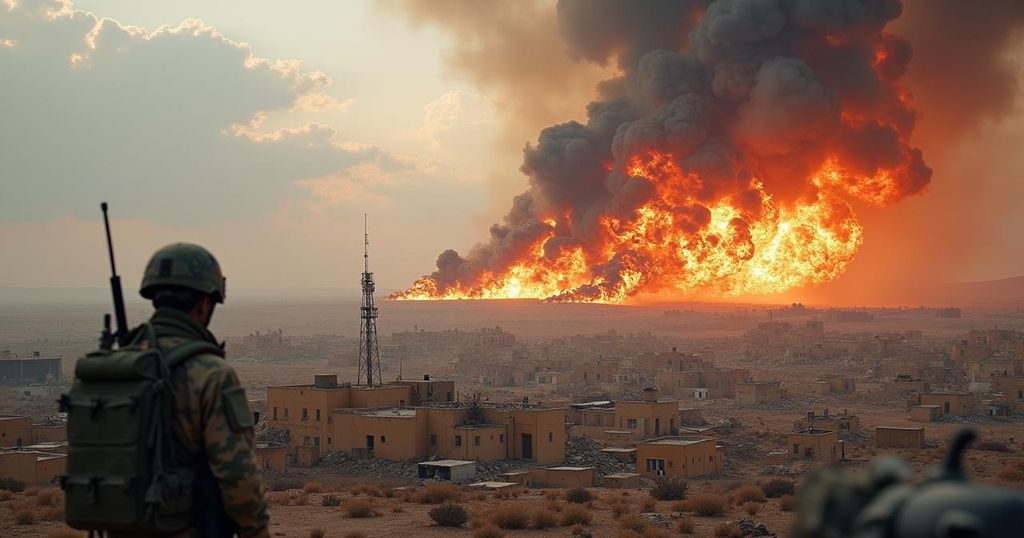Israel has conducted over 220 airstrikes in Syria since October 2022, targeting Iranian-linked sites, resulting in numerous casualties. Despite Syrian condemnation, military responses from Syria have been limited. International reactions have been minimal, highlighting the complexities of regional security dynamics.
Israel has been engaged in numerous military operations against Syria, primarily targeting sites associated with Iranian influence and military capabilities. Recent reports indicate over 220 airstrikes and artillery attacks conducted by Israel against Syrian territories since October of the previous year, resulting in approximately 296 fatalities, as reported by the Syrian Observatory for Human Rights. Notable incidents include significant airstrikes on weapons depots and an attack on the Iranian consular building in Damascus, which led to the deaths of high-ranking members of the Islamic Revolutionary Guard Corps. The Israeli government has publicly acknowledged its air operations in Syria, justifying them on the grounds of national security and countering perceived threats from Iranian-affiliated groups. Syria, governed by President Bashar al-Assad, has openly condemned these attacks but has largely refrained from a robust military response, aside from some limited retaliation targeting Israel. The international community’s response has been largely muted, with several nations, including Russia and China, expressing condemnation of Israel’s actions as violations of Syrian sovereignty. This ongoing pattern of military engagement highlights the complexities of the geopolitical landscape in the region, particularly concerning Israel’s self-designated strategy of preemptive strikes against adversaries it views as threats to its state security.
The tumultuous relationship between Israel and Syria has persisted for decades, characterized by conflict and military hostilities. Recently, the dynamics have intensified, particularly in light of the Iranian military presence in Syria and the broader implications of the Syrian civil war. Israel has adopted a strategy of conducting airstrikes against targets deemed relevant to Iranian military activities, ostensibly to prevent the transfer of advanced weaponry to Hezbollah and other militant groups. The historical context underscores an escalation of attacks since 2011, with a significant surge since 2017, reflecting the turmoil within Syria and its implications for Israeli security. Furthermore, the ongoing conflict in Gaza has seemingly shifted the focus while simultaneously allowing for continued military engagement in Syria.
The pattern of Israeli military operations in Syria underscores a complex interplay of regional security concerns, especially concerning Iranian influence and military presence. Despite numerous attacks being reported, the international community’s response remains lacking in coherent diplomatic or military pressure against Israel’s actions. The prolonged silence from Syria in retaliation suggests a strategic recalibration amid broader regional tensions, as Israel continues to assert its stance on the necessity of preemptive strikes to safeguard its national interests against perceived threats. This ongoing situation will require vigilant observation, given its far-reaching implications for stability in the Middle East.
Original Source: www.aljazeera.com






